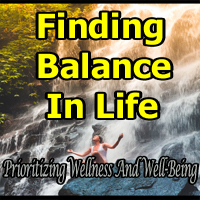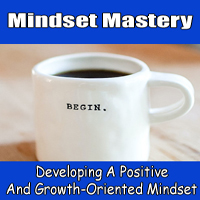


A Double-Edged Sword

The relentless pursuit of success is a concept deeply ingrained in modern society. It's a driving force that compels individuals to push their boundaries, overcome obstacles, and reach for their dreams. While the pursuit of success can be a powerful motivator, it is a double-edged sword that, when unchecked, can lead to unintended consequences. In this article, we will explore the nuances of the relentless pursuit of success.
Defining Success
Before delving into the relentless pursuit of success, it's crucial to define what success means. Success is a highly personal and subjective concept. For some, it may be achieving career goals, financial prosperity, or professional recognition. For others, it might involve personal fulfillment, strong relationships, or making a positive impact on society. The pursuit of success varies widely depending on individual goals and values.
The Power Of Ambition
Ambition is the driving force behind the relentless pursuit of success. It propels individuals to dream big, set ambitious goals, and relentlessly work towards them. Ambition can lead to remarkable achievements and innovations, pushing the boundaries of what's possible in various fields.
The Dark Side Of Relentlessness
While ambition is a powerful motivator, the relentless pursuit of success can have a dark side. It can lead to workaholism, burnout, strained relationships, and a narrow focus that neglects other essential aspects of life, such as physical and mental well-being. In the pursuit of success, some individuals may sacrifice their health, work-life balance, and even their values.
Finding Balance
Finding balance in the relentless pursuit of success is essential. It's crucial to set realistic goals, maintain a healthy work-life balance, and regularly reassess one's values and priorities. Striking a balance allows individuals to achieve success without compromising their well-being and the well-being of those around them.
The Role Of Resilience
Resilience is a key factor in the relentless pursuit of success. It helps individuals bounce back from setbacks and overcome obstacles, allowing them to persevere in the face of challenges. Resilience enables individuals to learn from failures, adapt, and ultimately achieve their goals.
Defining Success On Your Terms
It's important for individuals to define success on their own terms. Success should not be solely based on external validation or societal expectations. It should align with one's values, passions, and aspirations. When success is defined in a way that resonates with personal goals and values, the relentless pursuit becomes more fulfilling and purpose-driven.
The relentless pursuit of success is a powerful force that can drive individuals to achieve incredible feats. However, it comes with responsibilities to maintain a balance that safeguards one's well-being and relationships. By setting personal definitions of success, practicing resilience, and finding equilibrium, individuals can navigate this pursuit in a more meaningful and sustainable way. Success should not come at the expense of the very things that make life rich and fulfilling.
Unveiling Their Hidden Potentials
 Empathetic And Compassionate: Introverts often possess a high degree of empathy. They are attuned to the feelings and needs of those around them, making them exceptional friends, counselors, and caregivers. Their ability to connect with others on a deep emotional level is a strength that fosters meaningful relationships.
Empathetic And Compassionate: Introverts often possess a high degree of empathy. They are attuned to the feelings and needs of those around them, making them exceptional friends, counselors, and caregivers. Their ability to connect with others on a deep emotional level is a strength that fosters meaningful relationships.
Effective Communication: Introverts are excellent listeners. They listen attentively, process information, and respond thoughtfully. This skill not only enhances their understanding of others but also makes them great communicators. In professional settings, this can lead to effective negotiation and conflict resolution.
The Key To Success In Life And Work
 Components Of Emotional Intelligence
Components Of Emotional Intelligence
Emotional intelligence can be broken down into several key components:
Self-Awareness: This is the ability to recognize and understand one's own emotions, moods, and reactions. It's the foundation upon which other aspects of emotional intelligence are built.
Self-Regulation: Self-regulation involves managing and controlling one's emotions, especially in challenging situations. It enables individuals to respond to stress or conflict with composure rather than impulsivity.
Empathy: Empathy is the capacity to comprehend and share the feelings of others. It enables us to connect on a deeper level with friends, family, and colleagues, fostering better relationships.
 Develop Self-Awareness: Knowing your strengths, weaknesses, and emotional triggers is crucial for building resilience. Self-awareness allows you to anticipate your reactions and employ effective coping strategies.
Develop Self-Awareness: Knowing your strengths, weaknesses, and emotional triggers is crucial for building resilience. Self-awareness allows you to anticipate your reactions and employ effective coping strategies.
Embrace Change: Resilient individuals tend to adapt well to change. Practice embracing change by intentionally stepping out of your comfort zone and facing new experiences with an open mind.
Build A Support System: Surround yourself with a network of supportive friends and family who can offer emotional and practical support during tough times. Sharing your struggles with trusted individuals can relieve emotional burdens.
Set Realistic Goals: Establishing achievable short-term and long-term goals provides a sense of purpose and direction. These goals can help you stay motivated and focused during challenging times.
Practice Mindfulness And Stress Management: Mindfulness techniques, such as meditation and deep breathing, can help you stay centered and calm in the face of adversity. Learning to manage stress effectively is a key component of resilience.
Develop Problem-Solving Skills: Instead of seeing problems as insurmountable, view them as opportunities to develop problem-solving skills. Analyze challenges logically and break them down into manageable steps.
Maintain A Positive Perspective: Maintaining a positive outlook, even in difficult situations, can greatly enhance resilience. Focus on the potential for personal growth and positive outcomes.
Building Stronger Relationships And Fostering Understanding
 Improved Communication: Resolving conflicts requires active and empathetic listening. It promotes clear and open communication, which is fundamental for understanding each other's perspectives.
Improved Communication: Resolving conflicts requires active and empathetic listening. It promotes clear and open communication, which is fundamental for understanding each other's perspectives.
Preservation Of Relationships: Conflicts left unresolved can damage relationships. Addressing issues allows both parties to move forward and maintain healthy connections.
Increased Self-Awareness: Conflict resolution can help individuals understand their own triggers and responses, leading to personal growth and self-awareness.
Enhanced Problem-Solving Skills: The process of conflict resolution encourages problem-solving and collaboration, leading to better solutions and outcomes.
Benefits Of Effective Conflict Resolution:
Reduced Stress: Resolving conflicts alleviates the emotional burden that conflicts can impose, leading to reduced stress and anxiety.
Stronger Relationships: When conflicts are addressed constructively, relationships can strengthen, as individuals feel heard and understood.
Positive Work Environment: In professional settings, effective conflict resolution can create a positive work environment, leading to increased productivity and job satisfaction.
Personal Growth: Addressing conflicts fosters personal growth as individuals learn to manage emotions and communicate more effectively.






Building Resilience And Finding Growth
 Building Resilience:
Building Resilience:
Resilience is the ability to bounce back from adversity, and it is a key component in coping with challenges. Resilient individuals possess the strength to adapt and grow in the face of difficult circumstances. To build resilience, consider these strategies:
Positive Mindset: Cultivate a positive outlook, focusing on opportunities and solutions rather than dwelling on problems.
Seek Support: Lean on your support network, whether it's friends, family, or a therapist. Sharing your challenges can provide emotional relief and fresh perspectives.
Self-Care: Prioritize self-care practices like exercise, mindfulness, and adequate sleep to maintain your physical and mental health.
Learn From Adversity: Every challenge carries valuable lessons. Reflect on what you've learned from past obstacles to grow and evolve.
Set Realistic Goals: Break down your challenges into manageable steps, setting achievable goals that keep you motivated.
Embrace Change: Accept that change is a constant part of life. Adaptability is a significant part of resilience.
Finding Growth Through Challenges: Challenges often provide an opportunity for personal growth. When we overcome difficulties, we become more resilient, gain wisdom, and develop a deeper understanding of ourselves. Challenges can also reveal hidden strengths and talents we might not have discovered otherwise.
Acceptance And Perspective: Coping with challenges also involves acceptance and a shift in perspective. Sometimes, we cannot change our circumstances, but we can control our response to them. By accepting the situation and focusing on what we can influence, we gain a sense of empowerment.
A Roadmap For Resilience And Growth
 Acknowledge And Accept: The first step in navigating change is acknowledging its presence and accepting that it is an inevitable part of life. Change can come in many forms, from personal transitions to shifts in the professional world. Embracing the fact that change is a natural and continuous process allows you to move forward with a more open mindset.
Acknowledge And Accept: The first step in navigating change is acknowledging its presence and accepting that it is an inevitable part of life. Change can come in many forms, from personal transitions to shifts in the professional world. Embracing the fact that change is a natural and continuous process allows you to move forward with a more open mindset.
Embrace A Growth Mindset: To navigate change effectively, adopt a growth mindset. This mindset views challenges and setbacks as opportunities for personal development and learning. Instead of resisting change, consider it a chance to acquire new skills, gain valuable experiences, and broaden your horizons.
Set Clear Objectives: Change often disrupts routines and plans. To navigate change successfully, set clear objectives that align with your values and goals. Having a sense of purpose and direction during transitions provides stability and a roadmap for moving forward.
Break It Down: Breaking the change into manageable steps can make the process less overwhelming. Whether it's a personal or professional change, dividing it into smaller, achievable tasks can provide a sense of control and help you focus on the next immediate step.